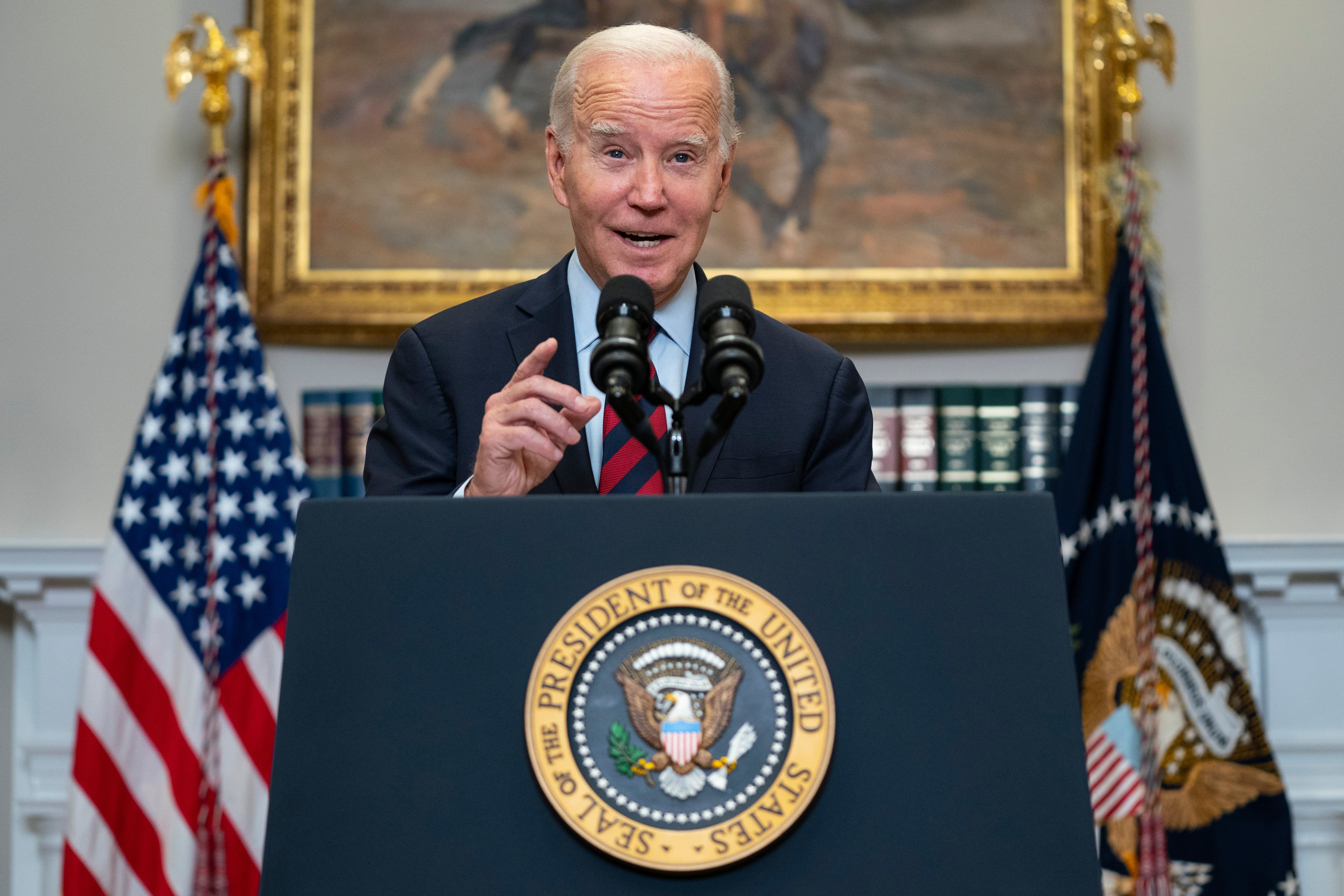Biden's second try at student loan cancellation moves forward with debate over the plan's details
President Joe Biden’s second attempt at student loan cancellation is moving forward as a group of negotiators meets to debate what a new proposal might look like

President Joe Biden’s second attempt at student loan cancellation began moving forward Tuesday with a round of hearings to negotiate the details of a new plan.
In a process known as negotiated rulemaking, 14 people chosen by the Biden administration are meeting for the first of three hearings on student loan relief. Their goal is to guide the Education Department toward a proposal after the Supreme Court rejected Biden’s first plan in June.
The negotiators all come from outside the federal government and represent a range of viewpoints on student loans. The panel includes students and officials from a range of colleges, along with loan servicers, state officials and advocates including the NAACP.
In opening remarks, Under Secretary of Education James Kvaal said the student debt crisis has threatened to undercut the promise of higher education.
“Student loan debt in this country has grown so large that it siphons off the benefits of college for many students,” Kvaal said in prepared remarks. “Some loans made to young adults stretch into retirement with no hope of being repaid. These debt burdens are shared by families and communities.”
Biden directed the Education Department to find another path to loan relief after the conservative court ruled that he couldn’t cancel loans using a 2003 law called the HEROES Act.
The latest attempt will rest on a sweeping law known as the Higher Education Act, which gives the education secretary authority to waive student loans — although how far that power extends is the subject of legal debate. The department is going through the negotiated rulemaking process to change or add federal rules clarifying how the secretary can cancel debt.
“The HEA gives the Secretary of Education the authority to ‘enforce, pay, compromise, waive, or release any right, title, claim, lien, or demand,’ including Federal student loans,” Kvaal said in his comments. “Our current regulations lack specificity on how that authority is applied.”
It’s unclear who will be eligible for forgiveness under the new plan and how much relief they would get. Those details will be decided after the administration takes input from the negotiators, who meet in a series of sessions scheduled to continue into December.
At the end of the process, negotiators will vote on a proposed rule drafted with input from their discussions. If they reach consensus on a proposal, the department will move forward with it. If they don’t, the agency will propose its own plan, which can be finalized after a public comment period.
The Education Department routinely uses negotiated rulemaking to enact federal regulation, and it’s required for any regulation related to student financial aid. It can be a long and painstaking process, and it often finishes without consensus among negotiators.
Biden has called for a new plan to help “as many borrowers as possible,” but it’s unclear whether it will be as expansive as his first proposal. That plan would have canceled up to $20,000 in federal student loans for borrowers with incomes below $125,000 or couples below $250,000.
Republicans rallied against the cancellation, saying it would add an unfair benefit for college graduates at the expense of taxpayers who didn't attend college.
The administration plans to finalize the new rule sometime next year, but Education Secretary Miguel Cardona has declined to say if it will be in place before next fall’s presidential election. In a recent interview with The Associated Press, he said he’s working “as quickly as possible.”
He also noted that the court’s ruling “will have to factor in to the steps we take moving forward.”
Some legal analysts see the court's decision as a rejection of any mass cancellation without action from Congress. The court concluded that the education secretary has power “to make modest adjustments and additions to existing provisions, not transform them.”
As a starting point for negotiators, the Education Department published an issue paper outlining some of the primary questions that will be up for debate. It offers few clues on the department’s vision for loan cancellation, but it identifies five groups of borrowers who may be in need of relief.
Negotiators are being asked how the agency should help:
— Borrowers whose interest grows so much that their balances exceed what they initially owed;
— Those who are eligible for loan cancellation under existing income-driven repayment plans but have not applied for those programs;
— Those who borrowed loans to attend college programs that didn’t lead to jobs with enough earnings to repay their loans;
— Borrowers with older loans taken out before Congress created benefits meant to ease the burden of student debt;
— Those who face hardships “that the current student loan system does not adequately address."
It also asks negotiators to discuss the types of factors that would merit loan cancellation. The paper notes that, when deciding whether to collect on debt, some other federal agencies consider whether it “would be against equity and good conscience,” or if it would “impose financial hardship.”
At a White House briefing last week, Biden drew attention to the problem of ballooning interest. Many college graduates have been making payments for years, he said, “but because of interest, they still owe more than they originally borrowed.”
“My administration is doing everything it can to deliver student debt relief to as many as we can, as fast as we can,” Biden said.
The negotiators meet virtually for two-day sessions on Oct. 10, Nov. 6 and Dec. 11.
___
The Associated Press education team receives support from the Carnegie Corporation of New York. The AP is solely responsible for all content.
Bookmark popover
Removed from bookmarks